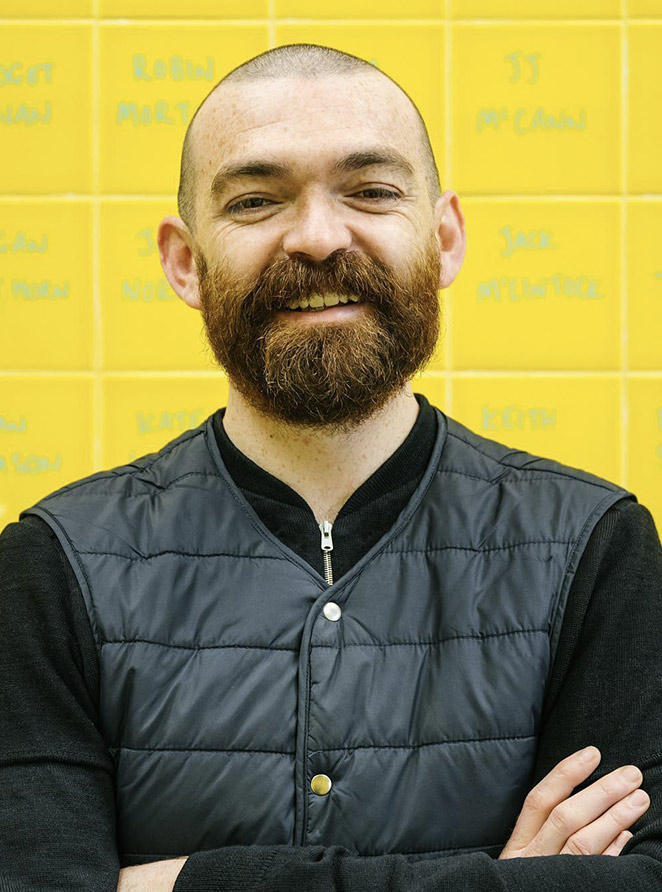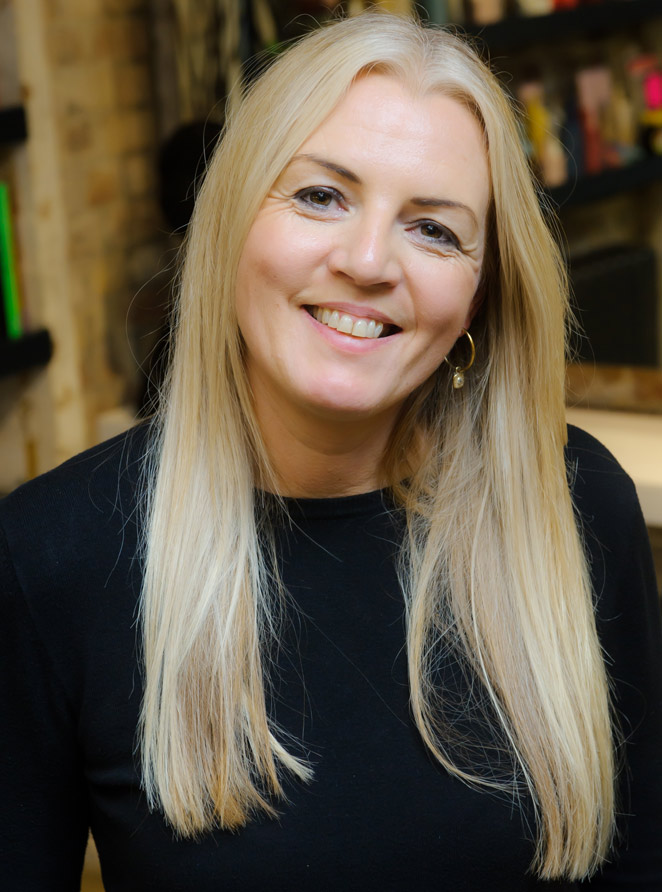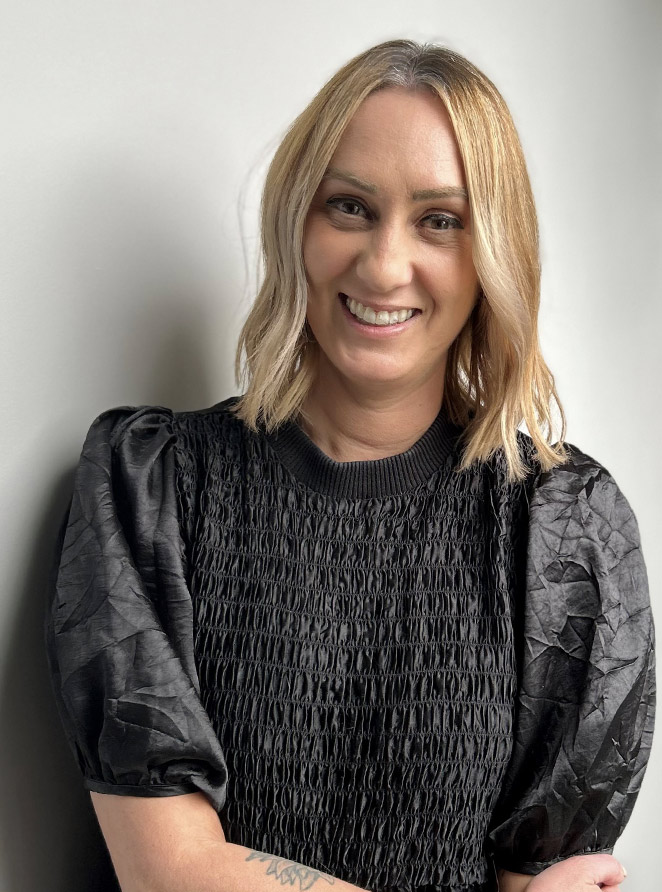Anxiety bites: the case studies
Shared by HUB members, here are five personal stories of managing anxiety in the workplace
PROVIDING ACCESS TO THERAPY
Murray McRae, co-owner of Stag, Edinburgh

“Returning to work post-Covid, we noticed a big increase in team members struggling to manage anxiety on the shop floor. They felt they had nothing to say to clients, no stories to share. We worked with them to talk through this, explaining that clients don’t come to the salon to be entertained, and that it’s important they stay true to themselves and not feel pressure to live up to false expectations. But we were a little out of our depth. We researched and found a workplace therapy service called Spill and signed up the whole team, which means that they can text a qualified therapist with a specific problem and receive a bespoke response with tips and techniques, or set up a therapy session via video chat, at a time that suits. It was important to find a service that was easy, bookable online, and which had a good degree of flexibility, because we all know how busy hairdressers’ lives can be. And therapy can be daunting, so you want to make it as easy as possible to access support. The service is anonymous, but we get a usage report to let us know how many sessions are used and we tend to find a member of the team speaks to a therapist at least once a month. It’s been a great success.”
STEPS I TOOK FOR MY TEAM
Pauline Smith, owner of Saks, Bishop Auckland

“I noticed changes in two members of my team at different times – they were either being subdued or over the top in their manner, turning up late for work or not coming in at all. I could see they were just not themselves – very quiet and withdrawing from the rest of our close-knit team. Being understanding and patient is essential, as is talking as a friend – boss hat off! I met them both [separately] outside of the salon for a coffee. As they opened up, we discussed ways in which I could help as an employer. We looked at hours of work, and introduced shorter days and rotating Saturdays off, so they could enjoy more of their weekends. And we then had weekly catchups. All in the strictest confidence, of course. We have a duty of care to look out for our staff. Both of mine are at work and know I’m there for them if they’re feeling out of sorts. So far, I’ve had no sickness absence. They both told me they appreciate my approach. As employers we have put things in place to help them in such times. Make work-life balance suit the individual and those around them too.”
SAFEGUARDING OUR YOUNG TRAINEES
Michelle Hale, director, Adam Reed London, London

“The pandemic highlighted anxiety in all areas of our lives and coming back to the workplace was a difficult adjustment for everybody. But the career disruption experienced by our younger team members increased anxiety over the delays to training and getting qualified. The negativity around the amount of time out of the business lead to doubt about continuing their journey in hairdressing. Encouragement and teamwork from colleagues helped, but for one team member, the pressure, coupled with the constant comparison to others their age, took their anxiety levels to a new high. With weekly check-ins we’ve been able to discuss any triggers or pressures and help our team member to develop coping mechanisms. We have also offered subscriptions to wellbeing or mental health apps and will fully support and help facilitate anybody wishing to speak to a professional. Mental health and anxiety are things we’re used to talking about freely at Adam Reed London, and I believe Adam’s openness about his own struggles, has set a positive precedent for our team, to feel comfortable in approaching leadership and colleagues to discuss how they are feeling.”
MANAGING MY ANXIETY
Miles Wood-Smith, manager at Murdock London, Covent Garden

“I’ve struggled more with anxiety as I’ve got older, and the way I deal with it at work is to be open and honest about it with customers and colleagues. A busy barbershop can be really stressful sometimes, so every spare second between clients, I’ll spend sitting outside on the bench – people watching. I think that little breather breaks up my day and reduces the chances of me getting too worked up. I’m lucky as a manager in my shop because I’m genuinely close to everyone who works here; they all know my struggles with anxiety and I think that’s normalised it as a legitimate issue, and one that can affect how you work, just like having a physical illness. I think it’s important to make managerial decisions around the mental health of your team a top priority – it’s easy to overwork people to make yourself look good as a manager, but that creates a toxic workplace and a horrible barbershop to visit.”
BUSINESS BEYOND BURNOUT
Jemma Mewies, co-owner of Mewies & Co, Leicester

“I’ve experienced total burnout, which affected both me and my team. Before finding balance, I didn’t have time, physically or mentally, to dedicate to every team member – I was so busy with my own clients and running the business and general life stuff. Late last year, it was clear change was necessary to protect the future of the business, so we entered 2023 with a restructure that meant I could drop some days behind the chair and find more time for the team. I now have regular one-to-ones with every individual, and we have weekly training sessions covering practical skills but also mindfulness, helping staff to realise exactly what makes them happy and what gives them drive and ambition. We also appointed a well-loved team member as salon manager, which has taken the pressure of me and [co-owner] Dan, but also given the team someone else they feel comfortable to talk to, if they don’t want to come directly to us. We push for our salon to be a safe and happy place and recognise the need to respond to change. By providing more flexibility and finding out what makes the team tick, we have overcome many issues and created an environment in which people want to work. Having an ‘open door’ policy is so important, if your staff don’t feel like they can talk to you then inevitably you will lose them.”
